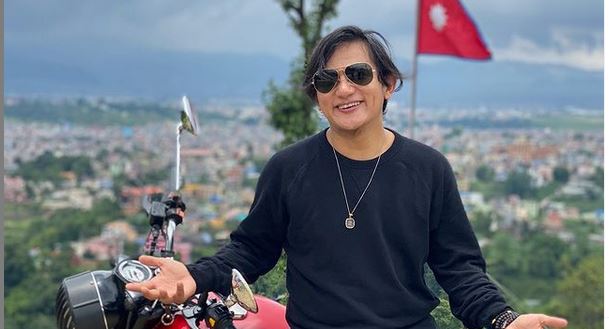
“I watched a reality show, most of them, and then I always wanted to go there, but unfortunately, I can’t because of my citizenship.” “When I was in a camp when I was little, a small - I guess when I was seven, I used to have to sing a song, and then I always wanted to participate in a reality show,” said Rai. Karan Rai in the crowd at the Pathri Refugee camp where he was born. Rai decided to audition for the show when he found out that the rules made the contest open to anyone who spoke the Nepali language - including those who had been trapped between two lands that didn’t want them, in refugee camps, left without a country to call home. Part of his contract with “The Voice of Nepal” is to tour several countries performing concerts and acting as an ambassador for the brand. Rai came with his family to the United States in 2013, first settling in Seattle, Washington, and later moving to Louisville so that he could expand his education.Īs we chat, Rai is preparing for a trip to Australia. Currently, only two of the camps, Beldangi and Pathri, still exist We got some rice, potatoes and chiles in Nepal.”Īs the United States and other countries began opening pathways for the refugees to migrate, the camps were merged. We used to get rations weekly, and then sometimes we’d run out of the rations. “We don’t have citizenship there, and then we don’t have nothing there. Rai (in white) sitting next to his teacher in the Pathri camp. Life in these camps was difficult, Rai says. In 1996, just two years after Rai was born, over 100,000 Bhutanese refugees of Nepali descent were living in the camps. Initially, seven refugee camps were established for refugees fleeing Bhutan when, according to Rai, Nepal refused to extend citizenship to the refugees despite their Nepali heritage. “All I want to say is no matter where you come from, where is your background, just focus. Now, as he returns to the United States again from his win at “The Voice of Nepal” Season 4, he wants to let others know that wherever you are, your dreams can take you anywhere, even back home on the other side of the world. When Karan Rai left the refugee camp, he came to the United States for the chance to live a better life - a life with a country to claim. “And then most of the Bhutanese people, they came in Nepal, and then the Nepal government, they don’t accept us as Nepali. “The Nepalese people who live in Bhutan, they fought for the freedom of speech because the King of Bhutan…They don’t allow Nepali languages over there,” Rai said. When the conflicts over language and homeland arose, his parents fled Bhutan to the camps. His parents were born in Bhutan, where the speaking or teaching of the Nepali language was under attack. Rai’s family are descendants of Nepalis who went to Bhutan for work. Rai was born in 1994, in the Pathri Morang refugee camp in Eastern Nepal, one of two remaining refugee camps for Bhutanese of Nepali descent who fled ethnic cleansing in Bhutan in the 1980s.

It was the story of how a hero is made - a classic humble-beginnings epic. So I volunteered.įrom the start of my conversation with Karan Rai, it was clear that winning “The Voice of Nepal” was more significant than the accolades he deserved from his success. ‘I could certainly write something quick about this,’ I thought to myself. From audition to final sing-off, a lot of time and expense is invested in participating. Winning the singing competition is no small feat. A man from Louisville had won “The Voice of Nepal” Season 4 and, even still, local media had yet to report it.

Great stories come from strange places sometimes - this time, from a Facebook post asking if someone, anyone, in the media could cover this story. Largest Selling Album of the Year – Kantipur FM Annual Award – 2002, 2003, and 2004.“The Voice of Nepal” Season 4 winner Karan Rai (center) with his coach (right).



 0 kommentar(er)
0 kommentar(er)
